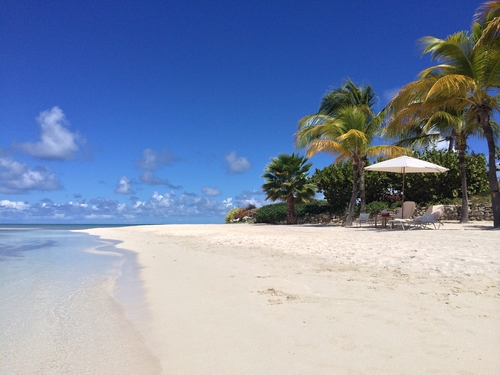A commonwealth country comprising of two main islands (plus several smaller ones), Antigua and Barbuda is located in the Caribbean. It’s a favourite destination for expats who prefer warmer climates and the island way of life. The islands are both fairly developed and thriving, particularly in the tourist industry. This means that Antigua and Barbuda enjoys the relaxed vibe for which the Caribbean is known, but also provides all the necessary amenities of modern life. However, some expats find cost of living surprisingly high, since on average it can even be more expensive than parts of the USA and Canada.In terms of education, Antigua and Barbuda has had relative success. Its adult literacy rate of 98.9 percent, which has stayed consistent for more than a decade, is one of the highest in the Caribbean. However, less than 15 percent of the population continues on to higher education such as university.
Education in Antigua and Barbuda is compulsory for children between the ages of five and 16. This basic level of education is free and provided to all without discrimination. Free education is covered up until the age of 18, but is only compulsory until 16. The school system is similar to that in the UK, with the school year running from September to June. Both private and public schools are available in Antigua and Barbuda. However, private schooling fees can be high and there are often extensive waiting lists.
Some reputable private and international schools include:
• Island Academy International School
• CCSET International Academy
• Antigua International School (AIS)
Funding
In a bid to ensure that all costs related to compulsory education are covered by the government, there is a levy on all basic wages in Antigua and Barbuda, the funds of which are used toward costs of supplies, transportation, and school infrastructure maintenance. You can read more about the education tax levy here on the board of education’s website.
Curriculum
The school curriculum is largely similar to that found in British schools. Students are required to cover core subjects including English, maths, science and geography. Some schools include a second language as part of their compulsory curriculum, but not all. It is not uncommon for schools affiliated with the church to mandate religious studies. International schools may follow curriculums similar to that of the US, Canada, France or Germany.
Children With Special Needs
Mainstream schools in Antigua and Barbuda tend to have additional (albeit still basic) facilities to cater to those with special needs or learning difficulties. Teachers will often receive additional training to be able to cater to such educational requirements. Educators have called on the government in recent years to develop a special-needs policy and more cohesive education programme. However, there is one specific school for children with disabilities and special needs, which is the Adele School for Special Children, located on Friars Hill Rd in St John’s, Antigua & Barbuda – 462-4627.
Colleges And Universities
There currently are three colleges and two universities located in Antigua and Barbuda. College level education is often referred to as ‘Tertiary Education’.
One of the universities (the University of Health Sciences, UHSA) is solely for medical studies and training. Its Doctor of Medicine program is a four-year course that consists of two semesters per calendar year. Semesters one to four consist of basic sciences studies which are completed at the Antigua campus. The remainder of the programme consists of internships at affiliated hospitals in countries such as the US, Puerto Rico, the UK and China. One of the pitfalls of studying there is the US license restrictions. The medical boards of some states (California, Indiana, Kansas and North Dakota) have listed UHSA as an institution whose graduates are not eligible for obtaining medical practitioner licenses there.
The other university is in Antigua and Barbuda is the American University of Antigua, which is also a facility to study medicinal practices.
The reality of higher education in Antigua and Barbuda is that only a small portion of students continue to this level of education. Many students choose to study elsewhere (often in the Americas), and few return home.
There are also various vocational institutes which offer professional training, usually in the areas of tourism and management.
Have you lived in Antigua & Barbuda? Share your thoughts in the comments below, or answer the questions here to be featured in an interview!

